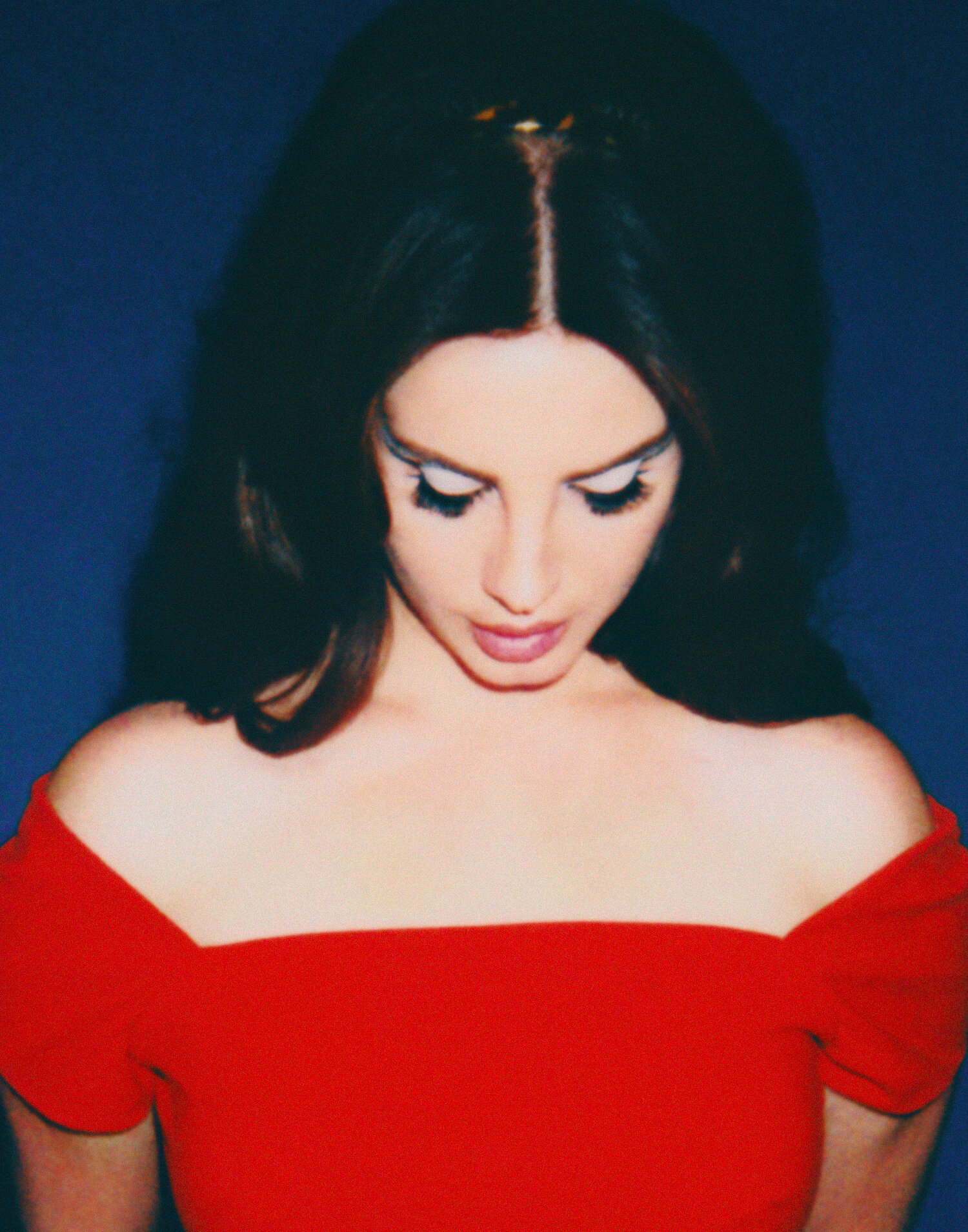Re-Imagining Stanning:
Lana Del Rey
By Abigail J. Villarroel
“Who would we be without interrogating the biases, histories and identities that makes us love the artists we love, even after they fuck up.”
Lana came into my life in 2011 and the first song I heard from her was Born To Die. Youtube’s VEVO was heavily featuring her everywhere and for a time, it was impossible to miss her. The aesthetic quality of the videos and her image were jaw-dropping, my queer imagination salivated at the mere idea of this lovelorn chanteuse singing around the Palace of Fontainebleau in a long Marseille wave, with pet white tiger; you. betta. work.
The music though, what was I listening to? Why was she dragging her voice so low? Her sound had enough string arrangements to transport you to your nearest cinema, but also heavy hip hop beats that elevated the songs to a very different place. I thought “this isn’t for me.” but kept coming back to it. The shadowy lyrics, the pensive haze of it all, it kept speaking to me and eventually I knew not to look back. I entered her world barefoot, and for 10 years, she gave me shoes… that’s a lot of shoes.
This infatuation has not been shared by the masses, at times understandably so. Her debut album was met with a very mixed reception from critics, her make-it-or-break-it SNL performance did not go well and interviews for Lana tend to be like navigating landmines (‘I wish I was dead already’ anyone?). The authenticity behind her stage name was in question, was she an industry hoax? a persona, and her lyrics came under fire often for being anti-feminist. Most recently, her album cycle for Chemtrails Over the Country Club has been plagued by dubious social media postings.
The most problematic post was in May 2020, where she defended herself from accusations that her past music ‘glamorises abuse’. She took issue with what she feels has been an overblown backlash to lyrics she believes to be an honest expression of her experience; how could her writing be called anti-feminist when she is a woman? etc. However, she expressed this by offhandedly contrasting herself from a list of mostly Women of Colour and what’s worse, using veiled language to heighten the contrast between what she does, and the other girls do.
Lana sings about “being embodied, feeling beautiful by being in love” and “dancing for money” whilst Doja Cat and Beyonce go to #1 with songs about “being sexy, wearing no clothes, fucking, cheating etc”. Is Doja Cat’s Say So not a song about ‘feeling beautiful in love’? Or Beyonce’s Halo not a song about ‘being embodied’ (whatever that might mean)?
I digress, sectors of Twitter quickly disowned Lana’s canon. She’s been marked as a racist, a Republican for momentarily dating a cop, and a superspreader for wearing a mesh mask for a poetry event. Leaving me, as a long time fan, conflicted, disillusioned, numb. Should I cancel an artist I hold dear to my heart for the insensitive things that she might say? Is that in itself a misogynist approach, am I as a man being too eager to want her silence? But in all this, would I be unintentionally validating her misogynoir towards Black Women? Lana is an influential artist, she should know better, but should I take that on?
In the sliding scales of moral infractions, of artists who I believe are better off cancelled, she has done a puny amount. In her career, her choice of words during interviews often veers into the poetic, and then in and out of the zeitgeist, but clarity is not something she ever gives. That in itself is what I’ve loved about her, the ambiguity, the dream-like state even beyond the music. But is she a thought leader, an artist I look to for socio-political commentary? No she isn’t, and I’ve never treated her art as such either.
Her canon is ripe with lengthy torch songs about her love of men and its many trepidations. She has been unashamed about how vulnerable she has portrayed herself in the past, and though her pov is changing too, I look back at those fatalistic/devotional portrayals and wonder what it was that captured my imagination. As a closeted teen I think I yearned for the freedom to love men as unabashedly as she did, even if everything wasn’t roses, to have that experience would have been enough. Vicariously living in the vague imagery of her worlds, in many respects it gave me a sense of belonging.
So perhaps, as a conclusion I can say I will not be burning vinyls or participating in witch-hunts. I would like to spend that energy holding accountable people wielding far more influence, in structures making decisions that put in danger the lives of disenfranchised people. No longer that spritely 16yo stan Lana first found, I know I can hold multiple truths and opinions without cancelling anyone, and that might be the most liberating state to embody. All whilst simultaneously remembering, there are always more pressing matters to worry about.
All photography Neil Krug




